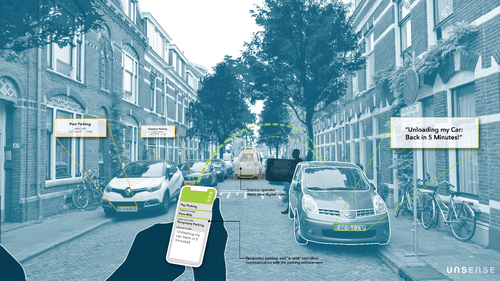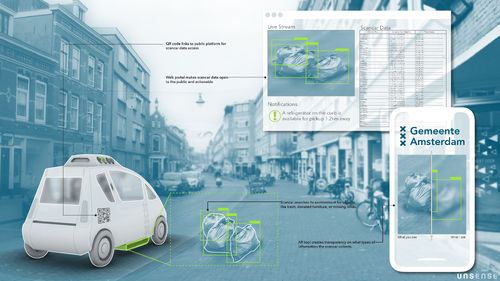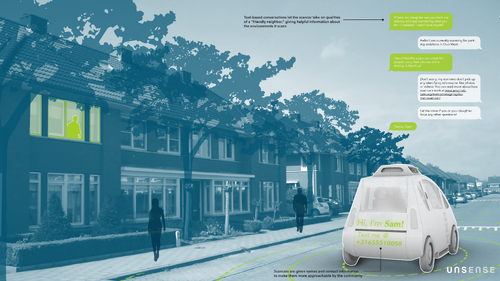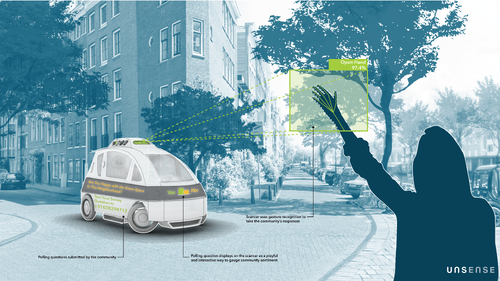Project Description
Onderdeel van
Trefwoorden
Technology like big data and smart sensors can help solve urban challenges. But when collecting data in the city, what public values are involved? Exploring new applications, like scan cars, helps to grasp the complexity of Responsible Urban Digitization.
The use of artificial intelligence (AI), robotics, big data, and sensors – to name a few new technologies – can potentially improve the quality of life in the city and enhance sustainability, livability, citizen engagement and empowerment. Simultaneously, these novel technologies are intertwined with central values for society and citizens, such as autonomy, privacy, transparency, inclusiveness and empowerment.
With our Responsible Urban Digitization program, we research, develop and integrate these innovative data science technologies to help solve urban challenges. At the same time, we explore how to embed society’s public and democratic values in the design of these innovations.
The scan car as a use case
One such example of sensing technologies used in cities are “scan cars”. These vehicles are equipped with sensors to collect data on the urban environment. Scan cars are becoming increasingly smart to improve efficiency and help the municipality to carry out tasks – from parking policy enforcement to waste registration.
But apart from making the city more efficient and clean, we question and explore what public and democratic values should be embedded in the implementation of these scan cars. For example, with regard to their purpose of urban data collection, could scan cars be designed in a way that makes them (more) transparent, understandable or even contestable by citizens? In other words, what features could make these vehicles more “human”?
To delve into the aforementioned, we joined forces with UNSense and organized a design sprint. UNSense is a design/strategy organization, founded by UNStudio, that focuses on improving people's living conditions and making buildings and cities more humane and healthier. To realize this, they perceive technology as a design tool.
4 designs that showcase “the scan car of the future”
Together with UNSense, we invited representatives from the City of Amsterdam and Rotterdam, TADA and researchers from TU Delft to join us for a 3-day sprint to design “the scan car of the future”, that also looks at the human and fair values of the advances in technology.
During these sessions, several design strategies were explored. Among others, participants investigated if the sensing the car does could be minimized, if function(s) of the car could become more understandable and what features could be added to possibly bring about benefits for the individual – being the citizens of Amsterdam.
To get a full impression of this design sprint, you're welcome to download this booklet. Ultimately, by leveraging the diverse backgrounds and areas of expertise of the participants, UNSense created four design proposals that rethink the existing model of human scan cars and data collection in the city.
These designs are built on a scale ranging from being transparent, legible, relatable, contestable to actionable:




What about the next steps?
AMS Institute will work towards more explorative research and a prototype to investigate whether these designs could be used for pilot testing. And, regarding the latter, we're currently in the midst of preparing for the launch of something very exciting... Keep an eye on our website and social channels for these developments.
Afbeelding credits
Icon afbeelding: concept4.original.png